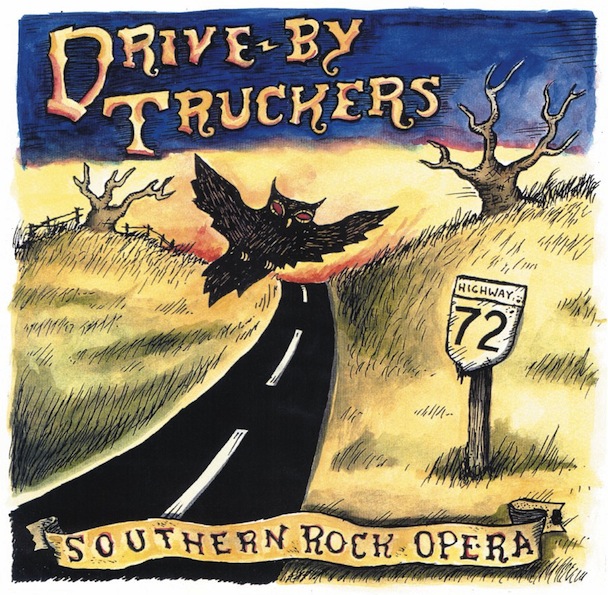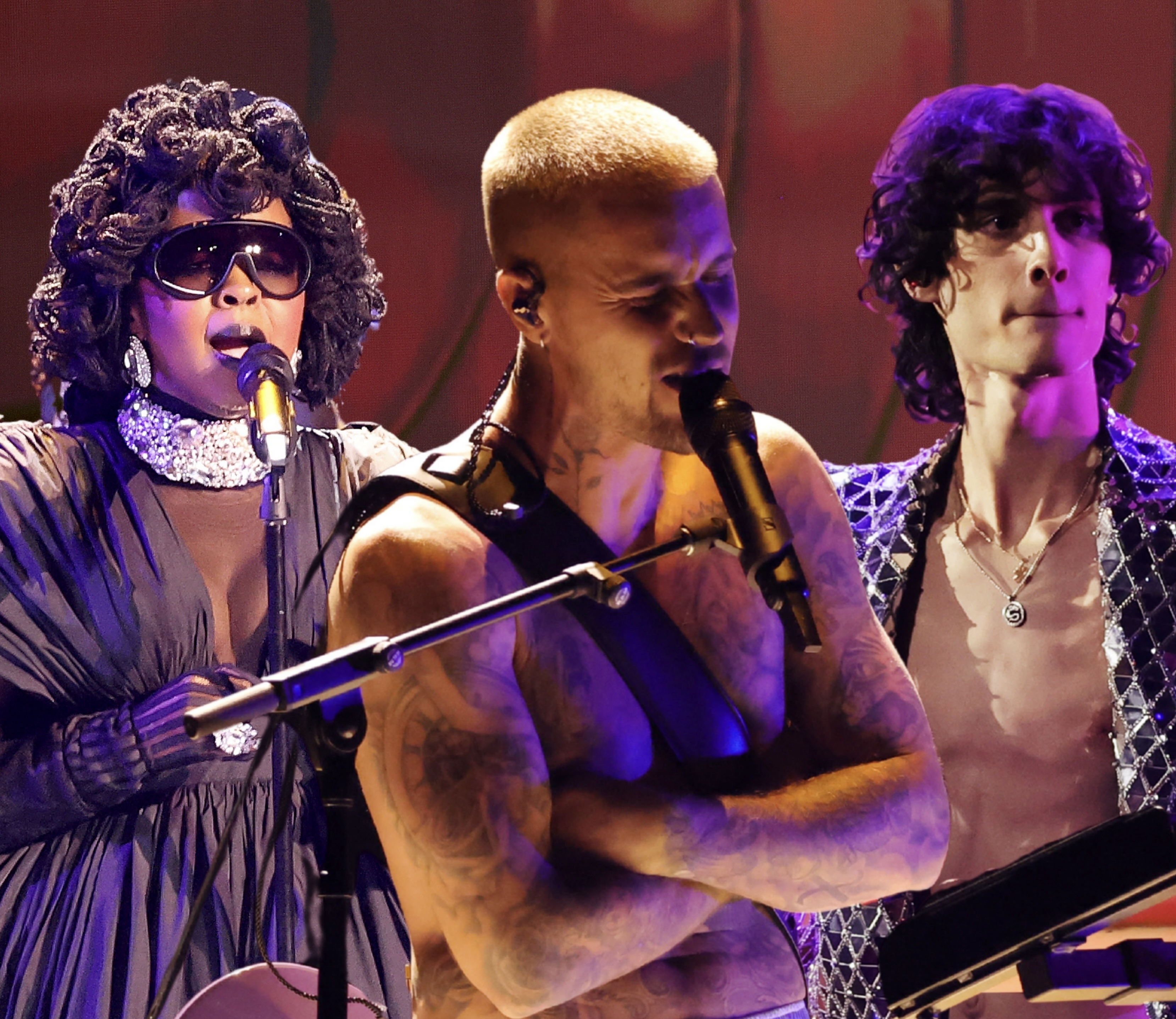The world has come a long way since the Who released Tommy in 1969. Tomorrow night, a stage adaptation of the Flaming Lips' seminal 2002 rock opera Yoshimi Battles The Pink Robots will premiere at San Diego's La Jolla Playhouse. It's not Broadway, but it is an indicator that the era of the rock opera could make a comeback. And this is the perfect time for a revival of the style.
The musical industry is hungry for material, but if Spider Man: Turn Off The Dark was any indication, musicals cannot draw from the same material movies do. Consider, on the other had, how well Rock Of Ages did, even if its filmic adaptation fumbled -- there is an appetite for familiar music onstage.
Fortunately for Broadway, the music industry has produced a wealth of legitimately good rock operas (and hip-hoperas), most of which remain unadapted for the stage. And no, most of them are not what you would call "classic rock," although some are. The relative self-indulgence of Pink Floyd's The Wall and Rush's 2112 has ebbed, for the most part, in favor of coherent stories, and characters that develop with the plot.
Music and theater at their best stir something in an audience. There's a swell of feeling produced in a live setting that can't be replicated anyplace else. Here are the 10 rock operas most urgently in need of a stage adaptation, with some ideas for how such a production might be carried out. Make your case for My Chemical Romance's The Black Parade in the comments.
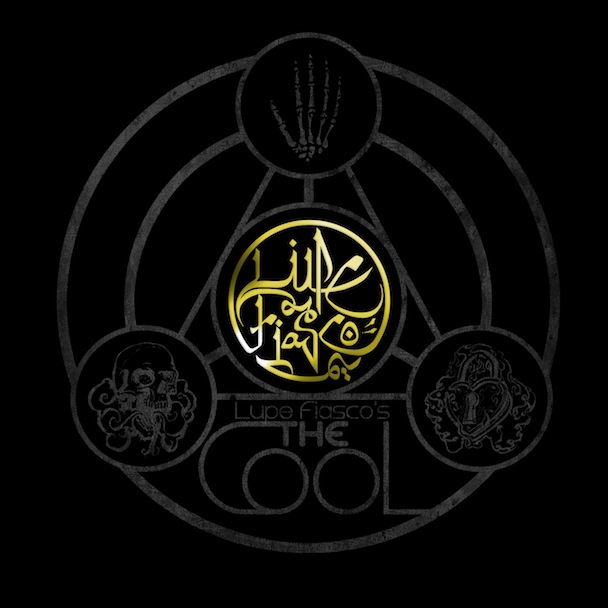
9. Lupe Fiasco – The Cool
Once upon a time Lupe Fiasco was the Next Big Thing in "conscious" hip-hop. Immediately after The Cool dropped, an air of excitement just followed the man around -- much like the one that surrounded Kanye West after the release of The College Dropout. Except Lupe's lyrics were smarter, his attitude was more nuanced, his rhymes were both quicker and wittier. And for one album, he bested his colleague's theatricality.
There's no shortage of Faust retellings in pop culture (in fact there's another in this list), but Lupe's interpretation mixes in equal parts allegory and autobiography. Lupe's characters in The Cool all strive for greatness, and face a choice between different sorts of good and evil. Lupe becomes every aspiring rapper that has ever been or will be, and along the way writes some of his most heartfelt numbers; "Hip Hop Saved My Life" is so earnest that any lesser emcee would make it laughable. But the finest moments on The Cool come when Lupe goes bad. His stint as a mafioso cheeseburger in "Gotta Eat" stands out, as does his ice-cold Mephistopheles in "Put You On Game."
A staged version of The Cool could be as past-meets-present as its premise. Its multifaceted exploration of urban culture is reminiscent of Rent and Moving Out. Lupe's large cadre of male and female guest singers opens up diverse cast options. Many arrangements on The Cool sport lush string sections as well as big electric beats. This adaptation could even be a smart career option for Lupe if Food And Liquor II fails as a return to form.
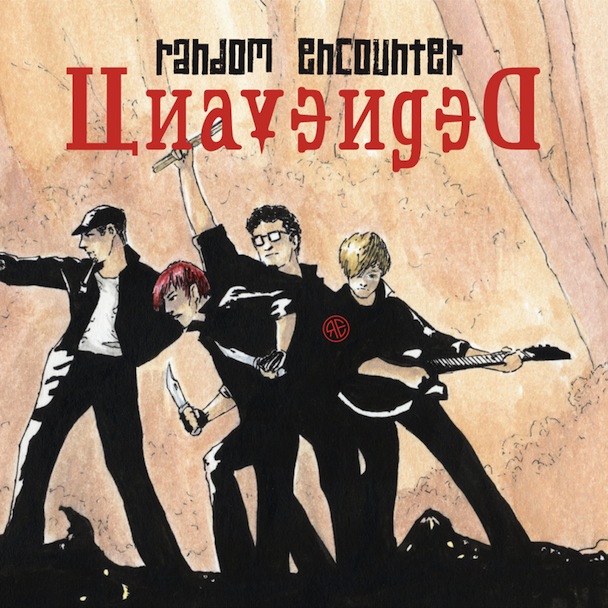
8. The Protomen – Discography
The Protomen are what happens when the rock opera goes viral: Nine college students record a song about the Megaman videogames on the night before their final project is due, and that one recording spirals into a touring independent rock opera with a ferocious Internet fanbase. Only the bold embark on a career-spanning rock opera, but the Protomen pull it off, thanks in no small part to their knack for wringing serious emotion out of shallow pop culture. Their take on the Megaman franchise as half family drama, half dystopia. The tag line writes itself: It's Les Miserables with robots. As for the music, the Protomen mix country, vintage synths, and noise rock into their sound. And Queen. Lots of Queen.
The band's debut sports more rough edges while the second act presents a much slicker '80s-throwback sound. The tonal shift actually fits the emotional shift from act one's gritty determination to act two's more optimistic finale. There is no third act yet, but if it ever is released, one could actually see this adaption happening. The Protomen already have the backing of Capcom (the company that owns the Megaman franchise), and such a production would come readymade with a fanbase. The Protomen bring gamers to rock shows, they could do the same for theaters.
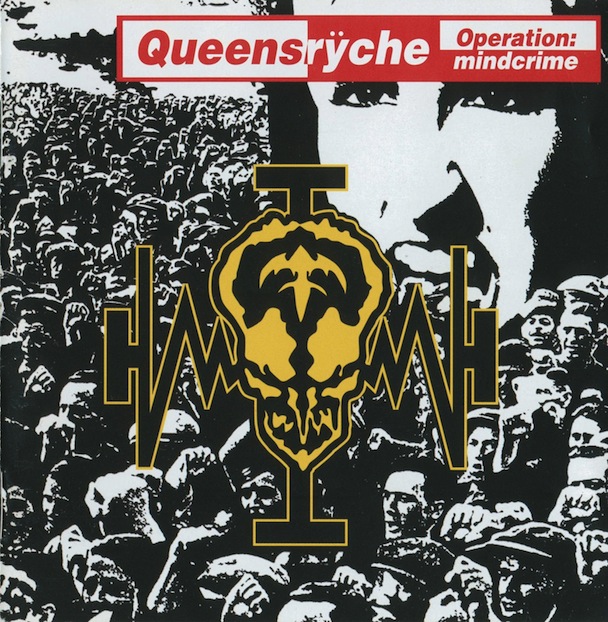
7. Queensryche – Operation: Mindcrime
Seattle prog stars Queensryche's Operation: Mindcrime's includes several anthems, a thrash number ("The Needle Lies"), a prog epic ("Suite Sister Mary"), and a B-side stuffed with dinosaur-sized ballads that only the '80s could produce. In lesser hands it would have been a mound of senseless cheese.
But Queensryche delivered something quite accomplished and profound. The band excelled at concept more than anything else. Most rock operas present their stories and characters as sketches serving the music, and rely on artwork to sell the rest. Operation: Mindcrime needs no crutches to tell a story. Its characters are well-defined entities with clear goals and motivations. What Nikki's progression from heroin addict to political assassin to amnesiac invalid lacks in emotional sincerity it makes up for with intrigue. Queensryche blended political thriller with star-crossed romance and social criticism into the most complex story on this list, but not he most convoluted -- Operation: Mindcrime strikes deeper chords now, after 9/11 and Occupy Wall Street, than it did in the '80s.
People have been trying to adapt Operation: Mindcrime for the silver screen since immediately after its release, but to no avail. And now that Geoff Tate has left Queensryche, it's unlikely the band will ever perform the album in its entirety again. The stage would make a better fit -- there's no fat to cut and no room to add, but plenty of space for dance breaks.
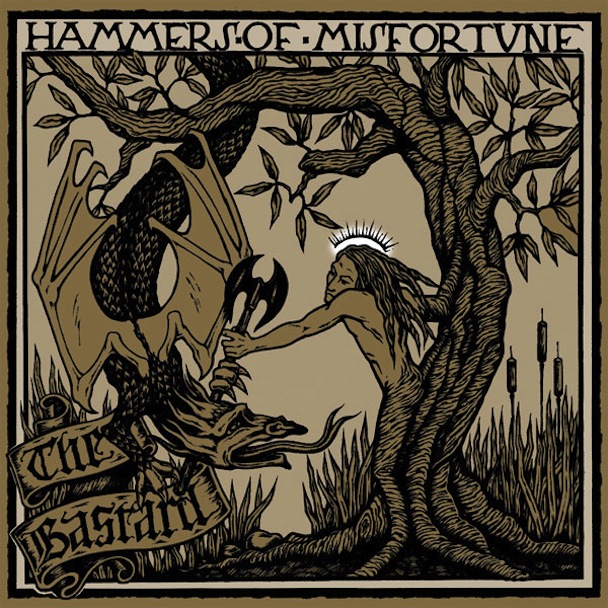
6. Hammers of Misfortune – The Bastard
Hammers Of Misfortune's debut album, The Bastard, follows the Coen Brothers rule of good storytelling: Create a character you love, and then torture him. The titular-but-unnamed character seems like a nice guy living a peaceful life in a haunted woodland until he finds out his father, who abandoned him, rules a nearby kingdom. Revenge plots, trips to hell and faustian bargains follow.
The Hammers have gone on to make a few rock operas with more complex themes (I toyed with including The Bastard's immediate successor, The August Engine, on this list) but The Bastard's plot is as recognizably folkloric as the Celtic influences that guitarist and songwriter John Cobbett blends with his classic heavy metal. It's a surprisingly effective story with shades of Grimm's fairytales, Greek tragedy, and a slight environmentalist undertones, and feels timely even a decade after its release. The fact that the album is neatly divided into three acts and component chapters makes it an easy adaptation as well
The Hammers recorded this material with just three people playing all the parts, and that intimacy is part of its power. The story an intimate revenge drama writ large, and the band sounds like Iron Maiden as played by your friends in a sweaty basement. Imagine it as a black-box take on Sondheim's In The Woods, except with an evil axe.
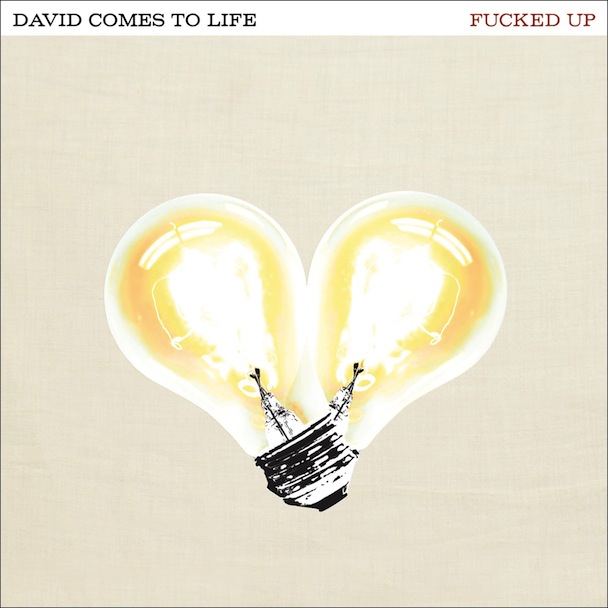
5. Fucked Up – David Comes To Life
Hardcore and rock operas don't exactly go hand-in-hand -- nor do hardcore and aww-inspiring sentimentality. But Fucked Up skew far from that genre's tropes. David Comes To Life tells the story of David, a factory worker who falls in love with political activist Veronica shortly before her untimely death. While the story bounces between unreliable narrators, it never falls prey to self-indulgence. It's just great rock music.
If Quadrophenia has a successor on this list, David Comes To Life is it. The album comes off like a summation of all hard rock that came before it. Windmill power chords segue into shoegaze textures, then explode into jagged Fugazi-isms or Bruce Springsteen sized sing-alongs depending on how Fucked Up feel.
The Boss makes the best touchstone for David Comes To Life: The album concerns itself with working-class people, their hopes and their romances, and its strength is emotional. David Comes To Life is so heartfelt that I felt uncomfortable the first time I heard it. Bassist Sandy Miranda's chorus of "We're dying on the inside," in "The Other Shoe," stands as one particularly earnest moment in an album full of them. Those moments make David Comes To Life perfect for the stage. David's story is a bit sparse on interesting images, but it leaves plenty of room for pyrotechnics. Besides, there's more to musicals than spectacle; people go to the theater to have profound aesthetic experiences, and Fucked Up's copious heart is worthy of the broadway treatment.
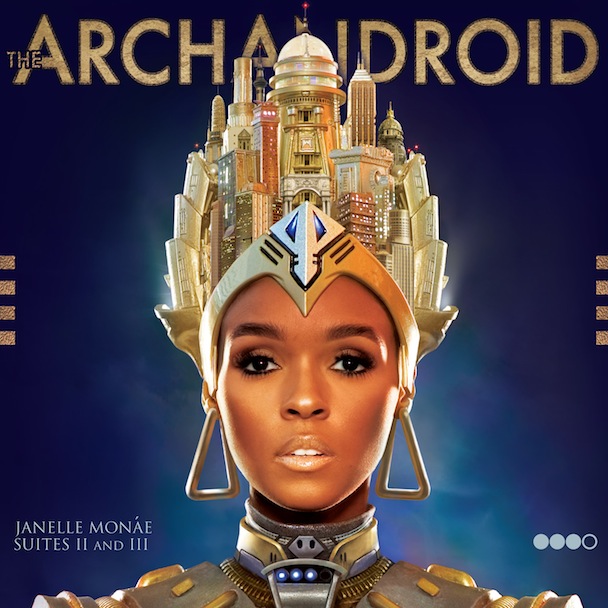
4. Janelle Monae – The ArchAndroid
Janelle Monae's hip-hopera was inescapable in 2010, with a storm of critical acclaim cultivating in a Grammy nod. Scene change, and two years later and Monae's official debut LP still feels like unfulfilled potential. It's not surprising, in retrospect, that The ArchAndroid didn't become the mainstream juggernaut it was heralded to be. The whole affair flows too seamlessly. Even though Monae included a wealth of solid singles like "Faster" and "Tightrope," most of her songs merge at the edges. The ArchAndroid is an aesthetic experience, and a poor fit for iPods, but cries out for vinyl. Or the stage.
Its storyline -- the trials and tribulations of a sentient, dancing android in a retro-futuristic world where dancing is outlawed -- has as much potential visually as lyrically. And what visuals they are: the art deco stylings of the album art and videos would come across just as well, if not better, on a stage. Monae's string and horn arrangements would be easy for hired musicians to pull off in the live setting, and not require a troupe to buy an MPC drum machine. And unlike almost every other rock opera save Meat Loaf's Bat Out Of Hell, this one comes packaged with a sellable star. Monae sings, dances and acts -- she's as much of a triple threat as her record.
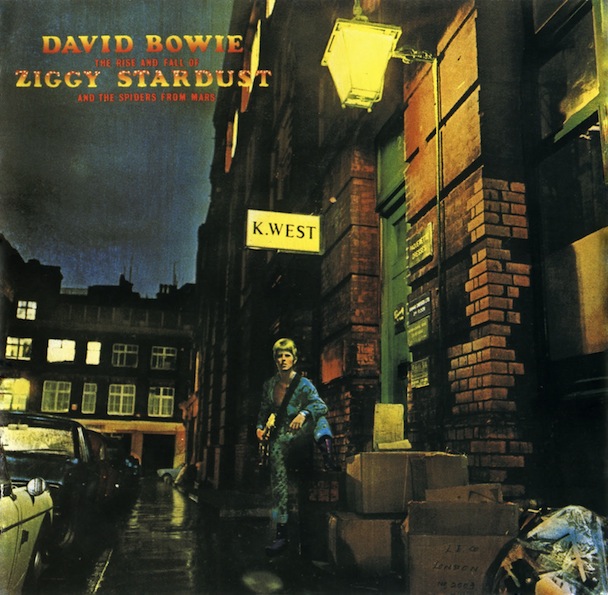
3. David Bowie – The Rise And Fall Of Ziggy Stardust And The Spiders From Mars
Ziggy Stardust might be the most recognizable fictional character in all rock music, and that crystallized identity gives the opera its iconic status. Unlike many icons of yore, however, Ziggy Stardust's critical acclaim holds today. Bowie's fascination with the cult of personality rings truer in the age of reality TV.
The inherent dichotomy of Ziggy's character shows in how diverse the Spiders From Mars were as a backing band. No two songs sound the same or deal with the exact same notions -- the whole thing seems so ADD as to be prophetic.
Ziggy Stardust's nervous energy informed future innovators such as the Talking Heads and Radiohead, and countless modern up-and-comers by extension. The mood of the album teeters between swagger and utter paranoia, e.g., glam rave-up "Suffragette City" gives way to brooding closer "Rock N' Roll Suicide."
Ziggy has yet to be brought to the stage, or screen for that matter (Velvet Goldmine doesn't count, and the Ziggy film is just a concert documentary), but his costumes and makeup are iconic to this day, and the plot is vague enough that the album would make an easy adaptation providing the casting director could find an actor to match Bowie's charisma.
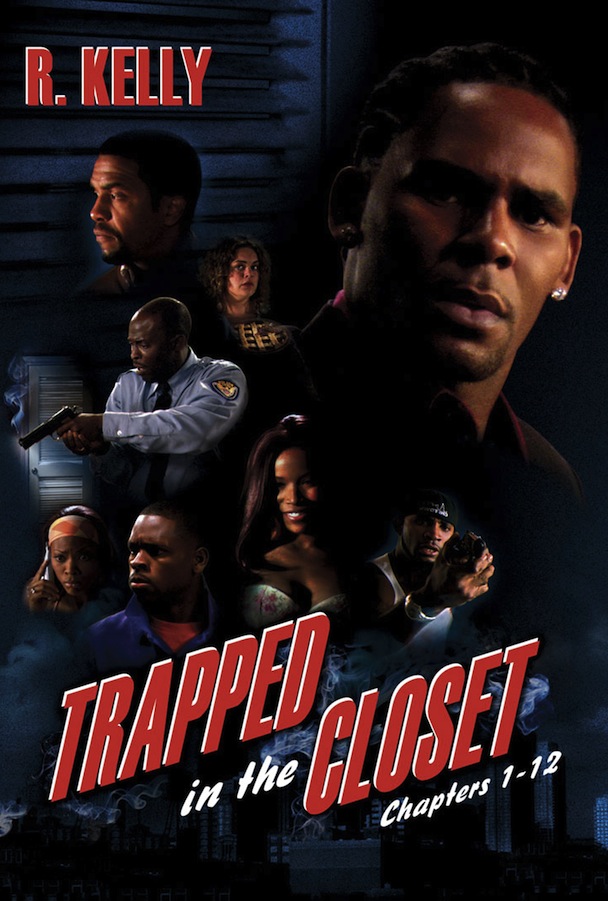
2. R. Kelly – Trapped in the Closet (1-12)
It's been the butt of countless jokes, including one of the best South Park episodes, but R. Kelly's improbable hip-hopera is one of the most ambitious curios in pop music. Trapped In The Closet has a litany of virtues to match its cultural currency. Most importantly, it's incredibly funny. Every character Kelly becomes is as crass as his own public persona, and he delights in pitting their ineptitudes against one anther. For example: One of the main characters is a gay reverend (thankfully he comes out of the closet early on), the perfect foil for Kelly's main character, Lester. The whole time, he practically performs lyrical contortions to keep the story going while rhyming, and against all odds largely succeeds -- guessing what will happen next lyrically and vocally is far more entertaining than the plot.
Trapped In The Closet's greatest strength is its self-awareness. Everything from Kelly's vocal inflections to the goofy beat production (some of those drums sound like beach balls dropping on a hardwood floor) wants you to smile at the absurdity of it all. It's not The Magic Flute, it's The Odd Couple, except with 10 or more psychos, all played by one man.
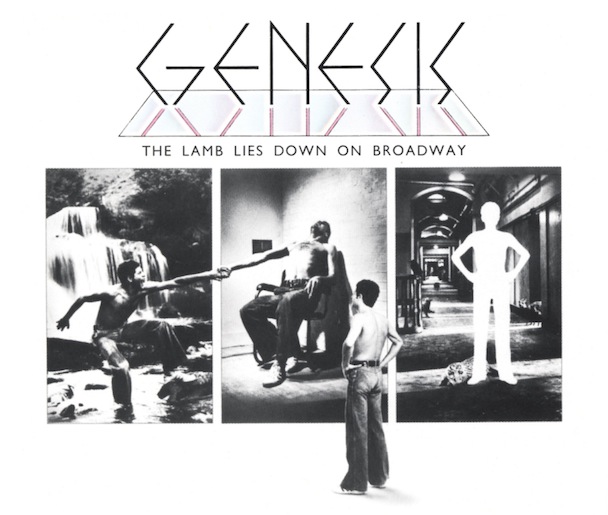
1. Genesis – The Lamb Lies Down On Broadway
Most bands stumble and falter right before a major lineup change, but not Genesis. The Lamb Lies Down On Broadway was the band's final album with Peter Gabriel, and the high point of every individual career involved. Few records display such clarity of vision. Gabriel uses every trick in his vocal register on Lamb, including a few he never used again. Tony Banks never sounds more delicate than on "Carpet Crawlers," and Phil Collins never sounded so much like John Bonham as on "Fly On A Windscreen." Here, every disparate musical element -- arch theatricality, swooning balladry, pastoral folk, jazz tangents, and pop focus -- that previously fought for supremacy on Genesis's earlier albums finally gel.
The story is a skid row fairytale of sorts. Gabriel's alter ego, Rael, takes a nightmarish journey through the sewers of New York City and into a magical underworld in search of his twin brother. The bizarre and often-sexual creatures he encounters give the story a quirky Freudian undertone, and a camp element that could work on stage, but not screen.
In fact, the tour behind Lamb was Genesis's most theatrical ever, with an intense light show and Gabriel's most notorious costume: the phallic Slipperman. Unfortunately, no complete video recordings of the Lamb tour remain, and after Collins's retirement there is no chance of the band recreating it.
All the more reason to bring Rael to the stage. At 90 minutes, Lamb would make a perfect stage show (counting set changes and an intermission). The odd creatures inhabiting its world present a golden opportunity for a creative stage designer, perhaps with a cast of puppeteers. Imagine the Jim Henson company bringing a Slipperman to life. The hardest part is finding a voice to rival Gabriel's.
